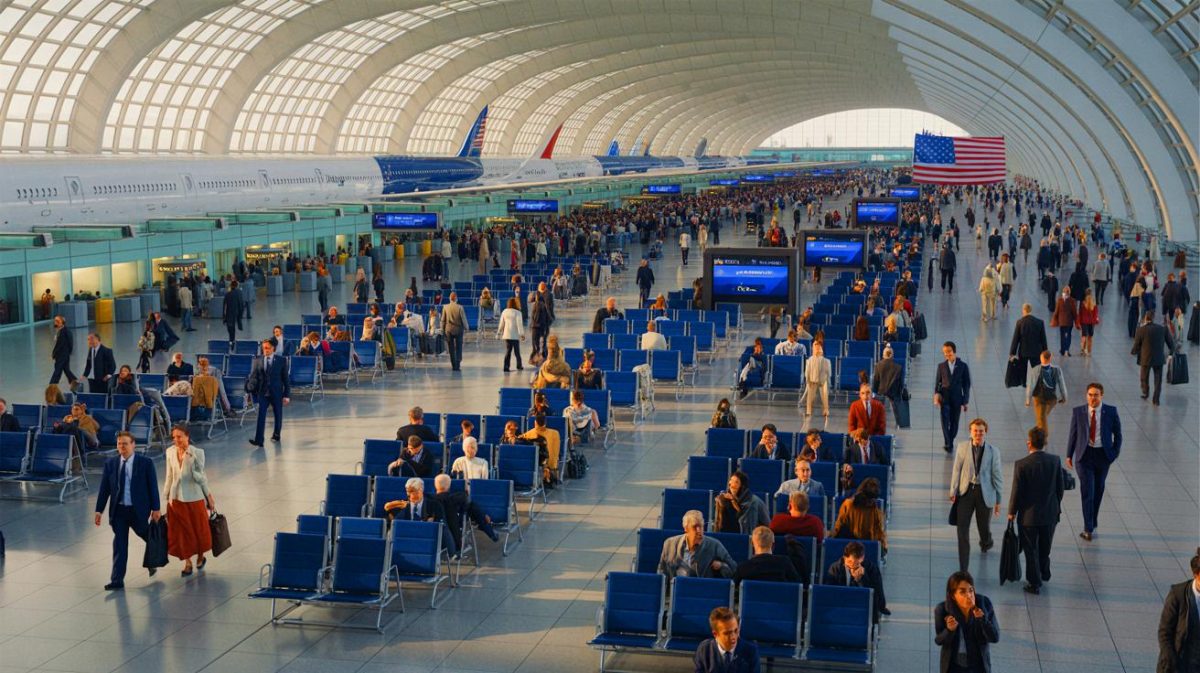| IN A NUTSHELL |
|
The return of Donald Trump to the presidency has created waves across various sectors, with tourism being one of the most affected. European travelers are increasingly opting out of visiting the United States, a trend that highlights deep-rooted concerns about U.S. policies and their global implications. This shift is not just about vacation preferences; it reflects a broader sentiment of disapproval towards the current administration. As European tourists turn their backs, the effects resonate through the U.S. economy, raising questions about the country’s image abroad and its ability to attract international visitors.
The Decline in Tourism: 17% Fewer European Visitors in March
Recent statistics reveal a stark decline in the number of European tourists visiting the United States. In March 2025, there was a 17% reduction in visitors from Western Europe compared to the same month in the previous year. These figures are particularly alarming given that tourism contributes approximately 2.5% to the U.S. GDP. Additionally, the overall number of foreign visitors to the U.S. fell by 12%, marking the most significant drop since the post-pandemic recovery period in 2021.
This decline signals a shift in global travel preferences and carries broader economic consequences. The reduction in international visitors affects multiple sectors, from hospitality to retail, potentially stifling growth. The contraction in tourist numbers underscores the challenges the U.S. faces in maintaining its status as a leading global destination amidst changing geopolitical landscapes. This trend reflects not only an economic issue but also a challenge in global perception of the United States as a welcoming destination.
European Tour Operators Sound the Alarm
Travel industry leaders across Europe have reported significant decreases in bookings to American destinations. The French hotel giant Accor noted a 25% drop in summer bookings from Europe, while Voyageurs du Monde observed a 20% decrease since Trump’s return to the presidency. These figures mirror a growing disinterest in U.S. tourism among Europeans, who are now favoring destinations such as Canada, Egypt, and various countries in Latin America.
The shift in travel patterns highlights a broader sentiment of dissatisfaction with U.S. policies. Industry leaders are sounding alarms, urging a reassessment of the factors contributing to this downturn. The changes in European travel preferences underscore the importance of addressing international perceptions and working to rebuild confidence in the U.S. as a welcoming and diverse destination. This is crucial not only for the tourism sector but for the broader implications of how America is perceived on the global stage.
A Direct Reaction to Trump’s Policies
The decline in interest in U.S. travel is largely attributed to policies enacted by President Trump, which many European citizens perceive as hostile. The strained geopolitical climate between Washington and Brussels, coupled with concerns over the treatment of foreigners, has painted the U.S. as an unwelcoming territory under the current administration. As Accor’s director succinctly puts it, there is “anxiety about entering an unpredictable territory.”
These policies influence not just immediate travel decisions but also long-term perceptions and international relations. The current administration’s approach has sparked debates about global cooperation and the importance of fostering positive diplomatic ties. The sentiment extends beyond travel, reflecting broader geopolitical tensions that could shape future international relations. This situation calls for a reevaluation of diplomatic strategies to ensure the United States remains an attractive destination.
A Sector in Distress
In light of these developments, projections for the American tourism industry have been revised downward. Tourism Economics initially predicted a 5% decline for 2025 but now estimates a 9.4% drop. This unexpected shift raises concerns about the United States’ capacity to maintain its international appeal amidst a polarized political environment. While less visible than a commercial embargo, the silent boycott by European travelers could heavily impact a crucial industry for the nation.
Tourism often serves as a reflection of geopolitical tensions, becoming a political expression tool for citizens. As the industry faces these challenges, stakeholders must devise innovative strategies to rejuvenate interest and restore international trust. The recovery of the sector will hinge on addressing the root causes of this decline and actively working to repair the United States’ global image. The industry’s resilience will be tested as it navigates these turbulent times.
As the United States grapples with these challenges, the implications for both the tourism sector and the broader economy are significant. The current trends highlight the intertwined nature of politics and travel, emphasizing the need for a strategic approach to international relations. Will the U.S. manage to reclaim its status as a premier global destination, or will political dynamics continue to reshape its tourism landscape in the years ahead?
Did you like it? 4.6/5 (22)








Wow, 17% drop in tourists? That’s like losing a small country’s worth of visitors! 😮
Do you think this trend will continue, or is it just a temporary dip?
Trump strikes again! Can’t say I’m surprised by Europe’s reaction. 😅
Maybe we should start promoting American destinations more aggressively in Asia?
Les aéroports américains sont vraiment déserts ? Cela doit être étrange à voir.
Plus a 25% drop in Canadian tourists. No way to turn it around until some policy changes